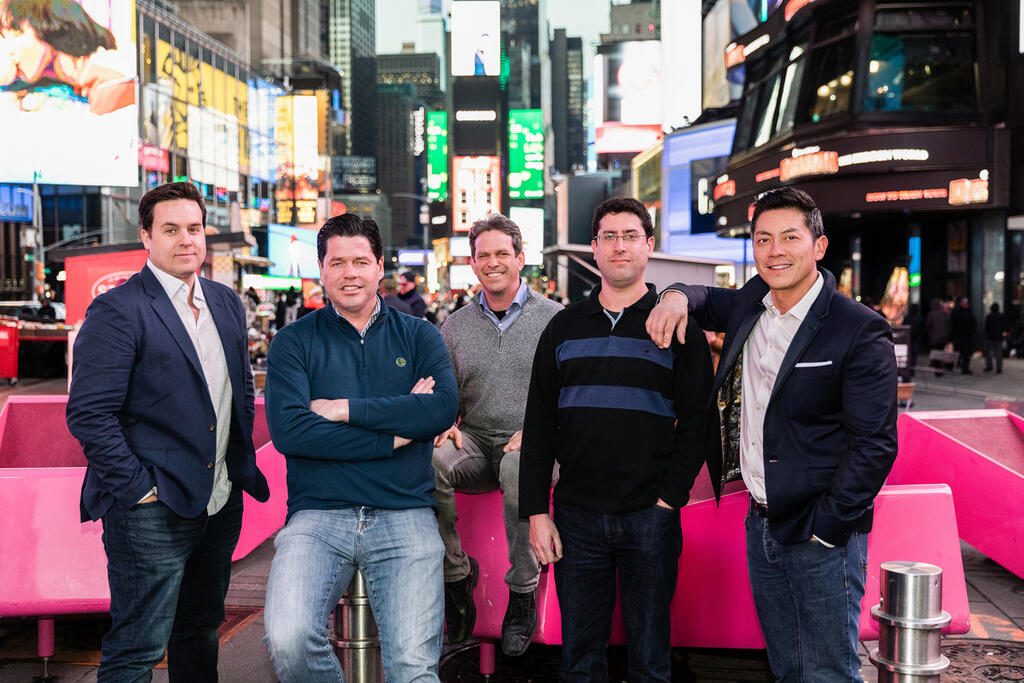
Vast Data nears record-breaking round as Israel’s quiet AI star targets $30 billion valuation | CTech
作者:CTech
Startup poised to raise billions from CapitalG and Nvidia, eclipsing Wiz’s previous high-water mark.
In what would become the largest funding round in Israeli tech history, AI infrastructure company Vast Data is reportedly raising several billion dollars in a financing round that could value the company at up to $30 billion, according to sources cited by Reuters. The round, led by Nvidia and Alphabet’s growth arm CapitalG, would eclipse the previous record set by cloud security firm Wiz, which raised $1 billion at a $12 billion valuation in May 2024.
If completed, Vast's raise would not only cement its place as Israel’s highest-valued private tech company but also mark a global milestone for AI infrastructure startups, a segment increasingly viewed as the backbone of the generative AI revolution.
Founded in 2016 by Israeli entrepreneurs Renen Hallak and Shachar Fienblit, Vast Data has taken a radically different path from its Israeli unicorn peers. Based in New York with R&D centers in Tel Aviv and Haifa, the company has remained deeply frugal, deliberately under the radar, and, remarkably, profitable. Its office space in Tel Aviv’s Expo compound lacks the perks and parties typical of unicorn culture. What it offers instead is transformative technology, a growing roster of blue-chip clients, and financials that would be the envy of most public companies.
As of early 2025, Vast had crossed $200 million in annual recurring revenue (ARR), with projections to triple that figure within a year. One investor familiar with the company’s books said it is on track to reach $600 million in ARR in 2026. Unlike many enterprise software firms reliant on short-term contracts, Vast locks in customers for 5–7 years, contributing to its unusually low churn.
Its customers include some of the biggest names in the public and private sectors: the U.S. Air Force, the Department of Energy, Booking Holdings, Zoom, Pixar, Boston Children’s Hospital, and Elon Musk’s AI startup xAI. Nvidia itself, a prior investor, is both a customer and a vocal champion. At the Computex conference in Taiwan this summer, Nvidia CEO Jensen Huang dedicated a portion of his keynote to explaining how Vast’s technology enhances GPU performance, calling it a critical enabler of AI model deployment at scale.
Vast’s architecture is especially prized for enabling real-time access to unstructured data, emails, logs, PDFs, and multimedia, that AI systems must process efficiently. By applying proprietary software to flash memory, the company has made large-scale storage faster and more cost-effective, addressing a critical bottleneck for enterprises and cloud providers.
Vast’s rise has mirrored the broader shift in venture capital and corporate investment away from flashy consumer applications and toward the plumbing of the AI economy. While its Israeli competitor Weka.io raised $140 million at a $1.6 billion valuation, and giants like Databricks eye IPOs at valuations north of $60 billion, Vast stands out for its financial discipline, deep tech, and strategic partnerships.
One of those partnerships is with CoreWeave, the AI cloud provider that recently went public and soared to a $77 billion valuation before falling back to its current valuation of around $50 million. CoreWeave integrates Vast’s storage layer into its infrastructure stack, a testament to Vast’s technical credibility and product-market fit.
To date, Vast has raised roughly $380 million, modest, given its now-reported valuation. Its ability to scale without burning cash has allowed it to be selective about funding and acquisition offers. While an IPO is not imminent, the appointment of Amy Shapero, Shopify’s former CFO, in 2024 was seen as a clear signal of IPO readiness.
But the new funding round may be more than a mere bridge to public markets. Industry observers suggest it could be a last chance for strategic investors like Nvidia to deepen ties, or for late-stage investors to get in before valuations soar further. A leak to TechCrunch last month appears to have been aimed at nudging valuation targets toward $30 billion and speeding up commitments.
If the round closes as expected, Vast will be in a class of its own in Israeli tech.
关于《Vast Data nears record-breaking round as Israel’s quiet AI star targets $30 billion valuation | CTech》的评论
发表评论
摘要
相关讨论
- 学习笔记TF059:自然语言处理、智能聊天机器人
- Global Recycled Polyester Staple Fiber Market Booms Amid Growing Demand for Sustainable Textiles
- AutoUpdater迁移到Github
- Global Neck Cream and Mask Sales Market Surges with Demand for Targeted Skincare Solutions and Anti-Aging Innovations
- 【招聘】【PayPal –上海人民广场(正式员工)】资深软件开发工程师,大数据Team职位

